Assistant Principal's Report
Georgia Despotellis

Assistant Principal's Report
Georgia Despotellis


A heartfelt thank you to the amazing parents who helped make Saturday night's disco such a fun and memorable experience for our students.
I'd also like to acknowledge the dedication of our staff, who have been working hard to complete reports and collaborate within teams and across the school to ensure consistency in teacher judgements.
A Cyber Safety Project incursion for our Years 3 to 6 students has been booked for the last week of term. Details about this incursion went out this week. Please see attached flyers for further information.
Reciprocal teaching is a powerful instructional method used to improve reading comprehension skills. It involves a group of students taking turns leading dialogues about the text they are reading, focusing on four key strategies: predicting, questioning, clarifying, and summarising.
Here's an overview of the different roles:
To implement reciprocal teaching at home:
Reciprocal teaching not only improves reading comprehension but also fosters critical thinking, collaboration, and communication skills. By practicing these strategies regularly, you can help your child become a more confident and proficient reader.
Below are some photos of our Year 5 students engaging in reciprocal teaching this week.
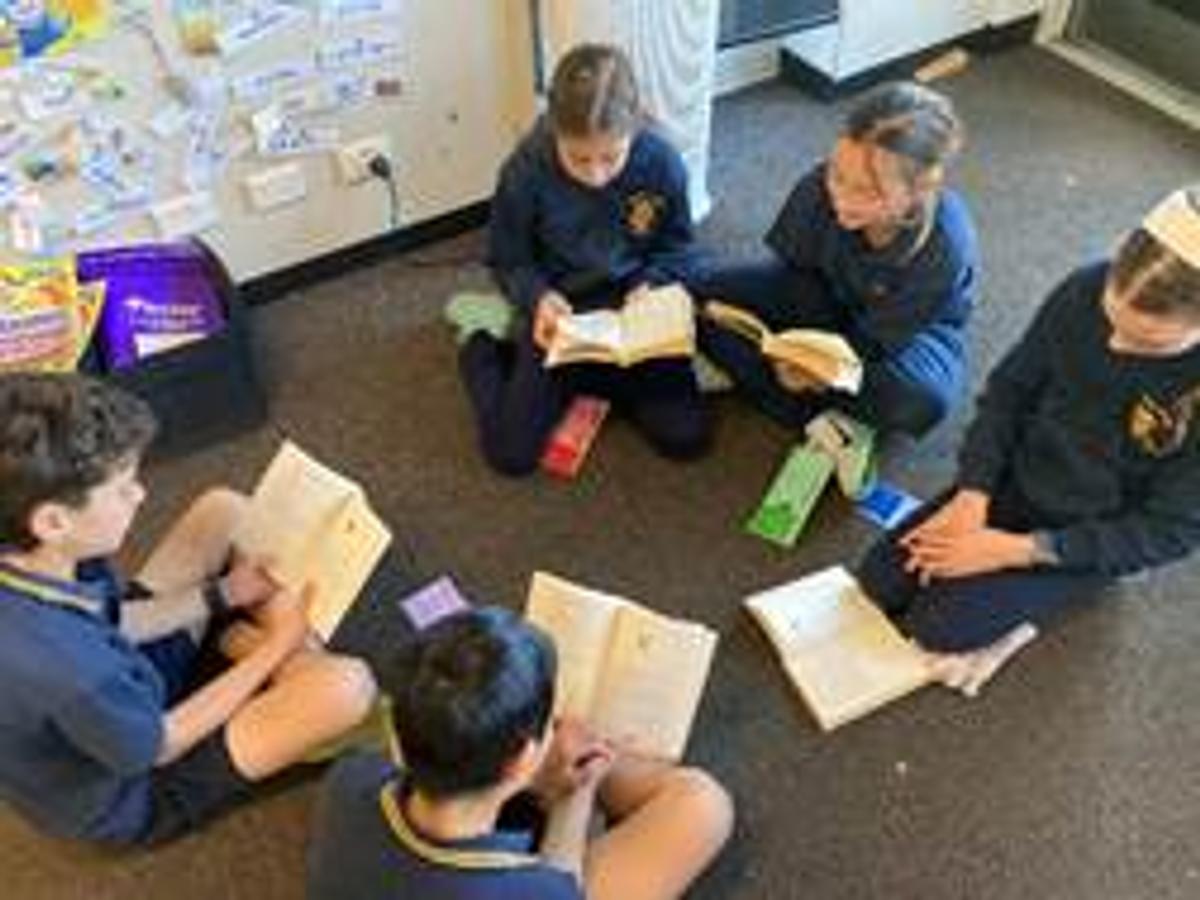
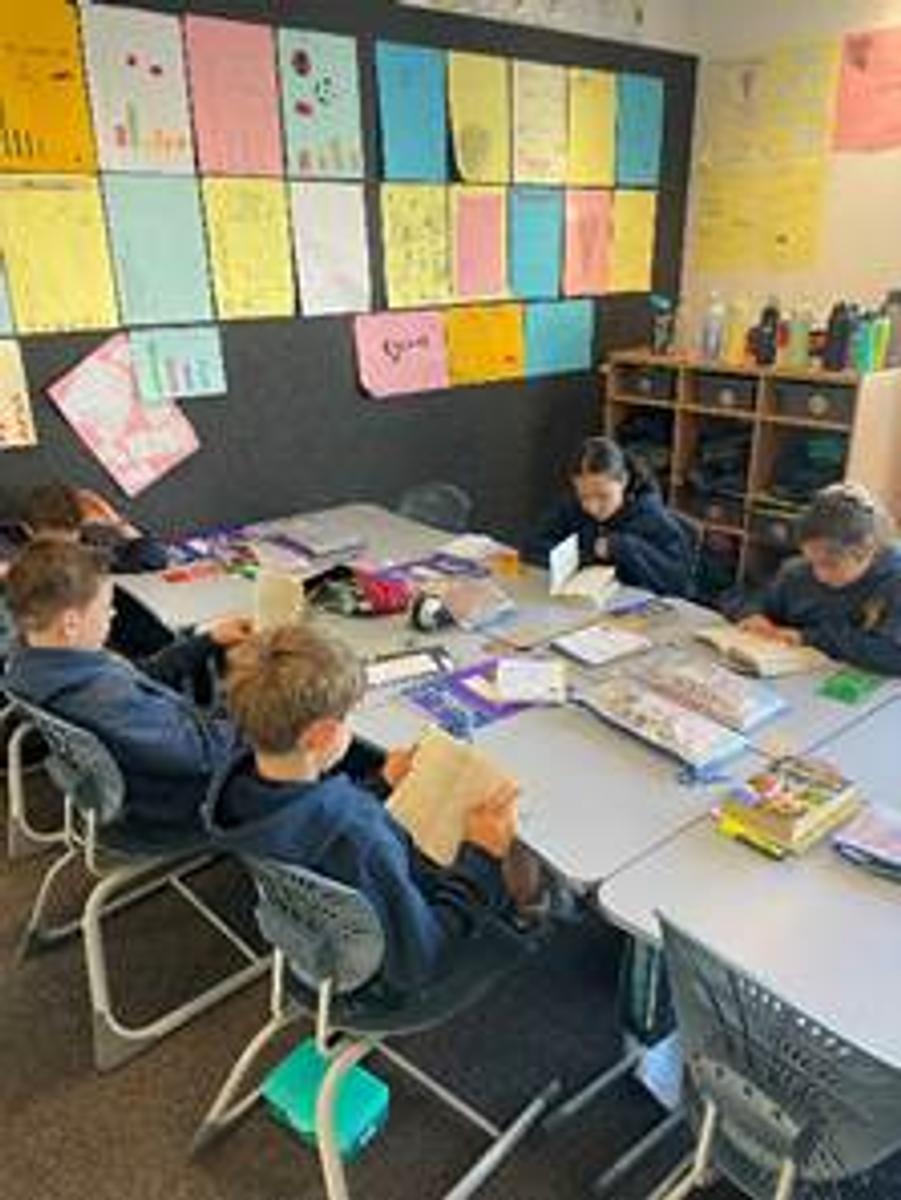
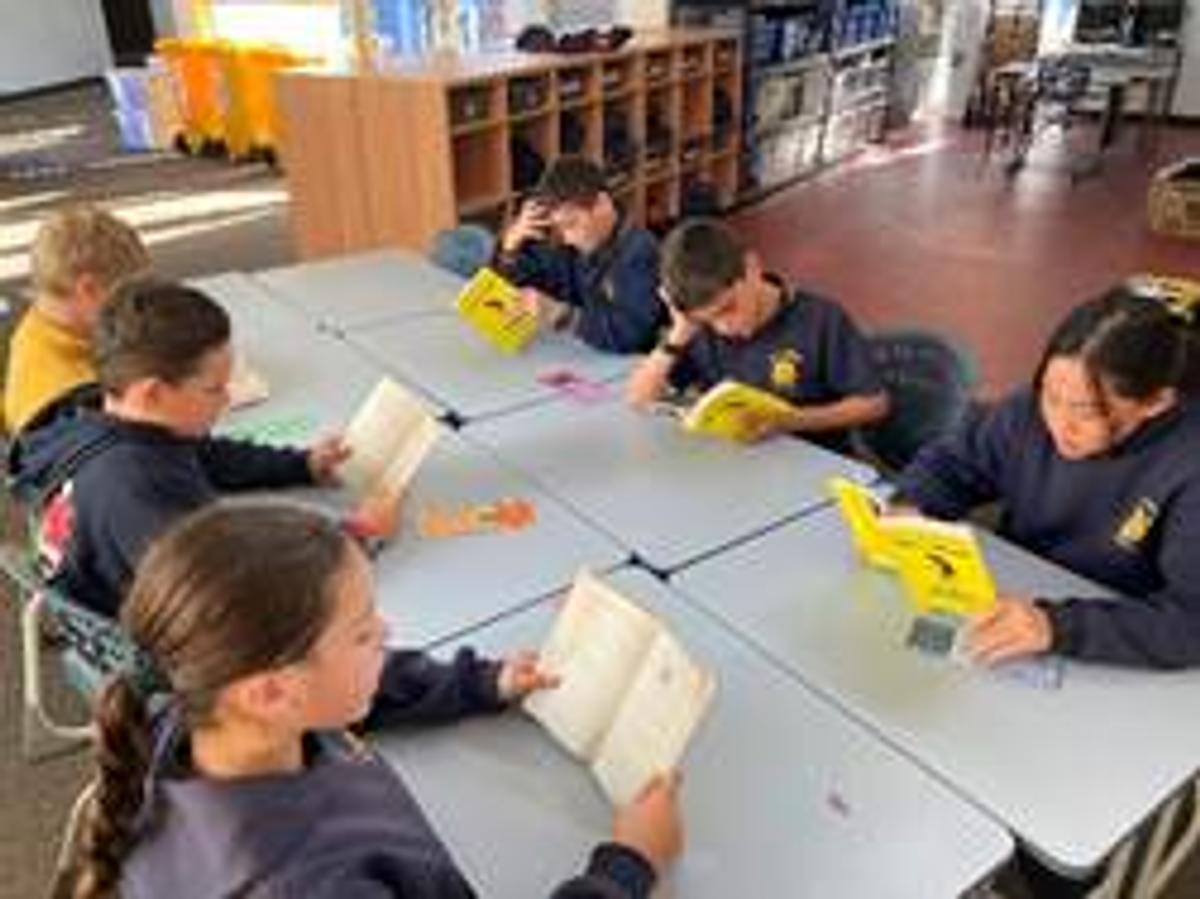
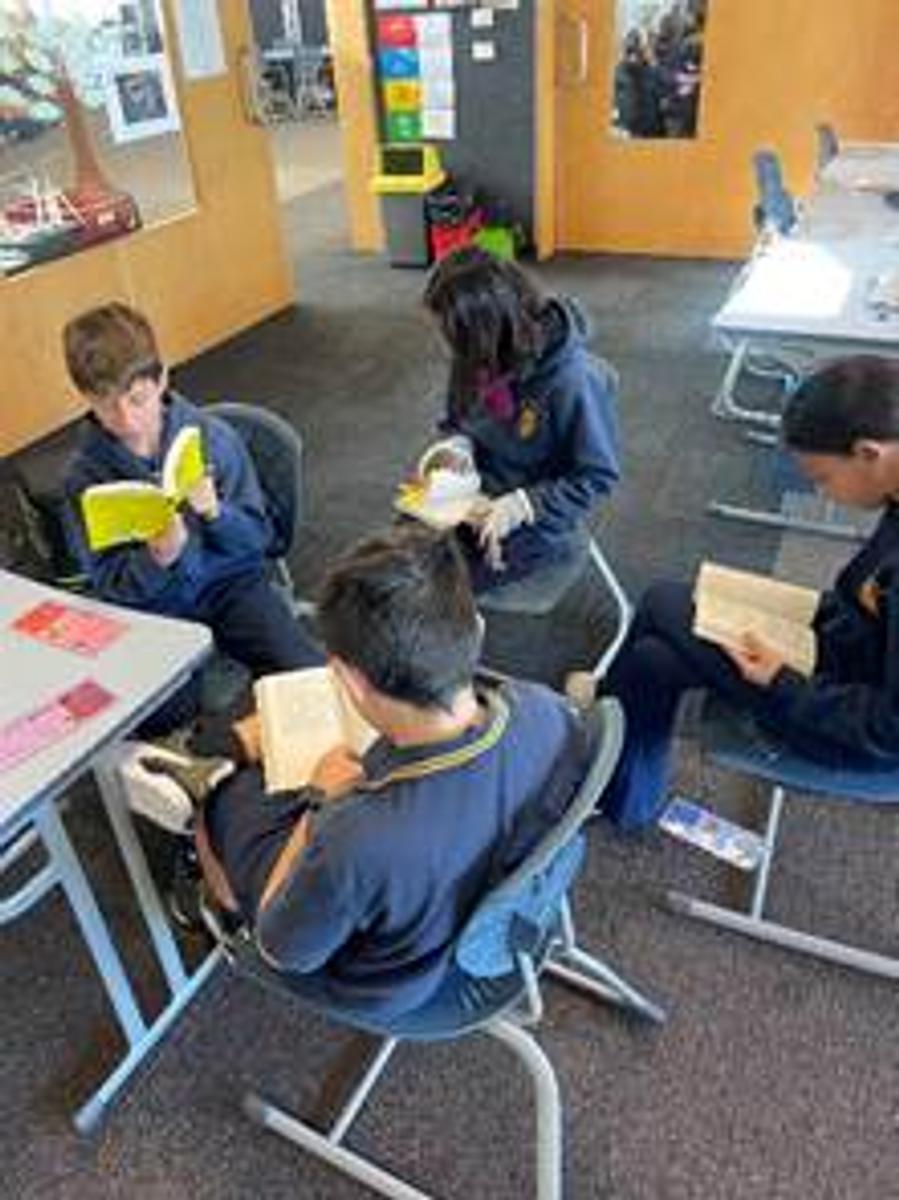
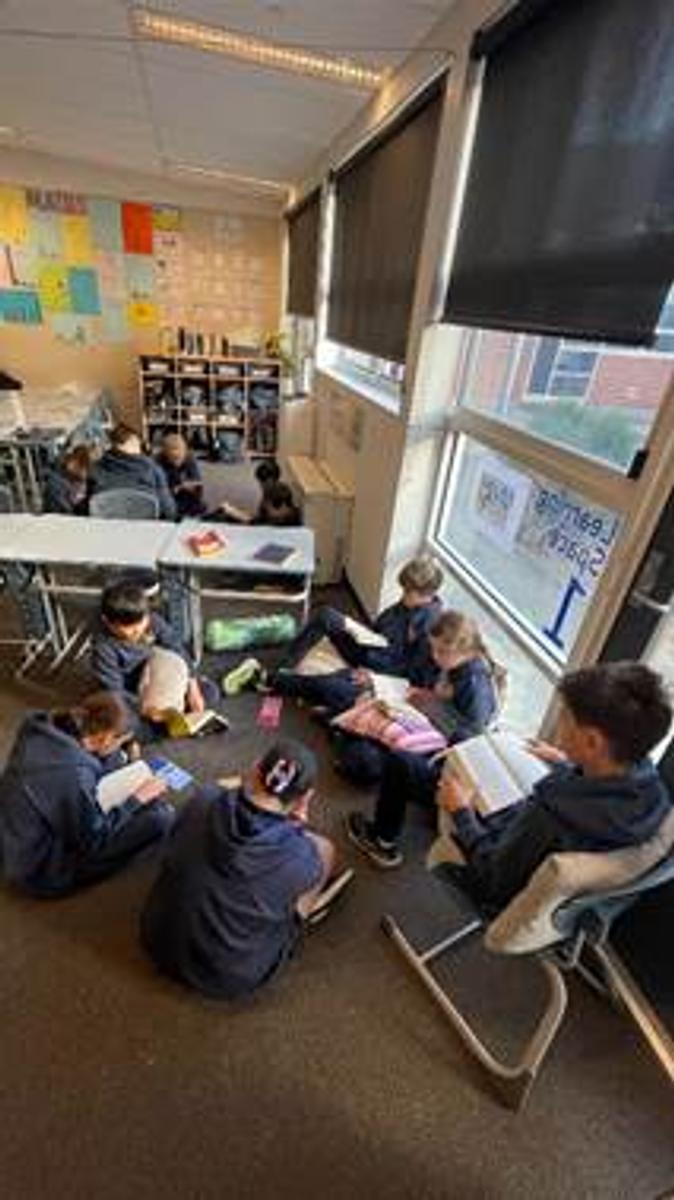
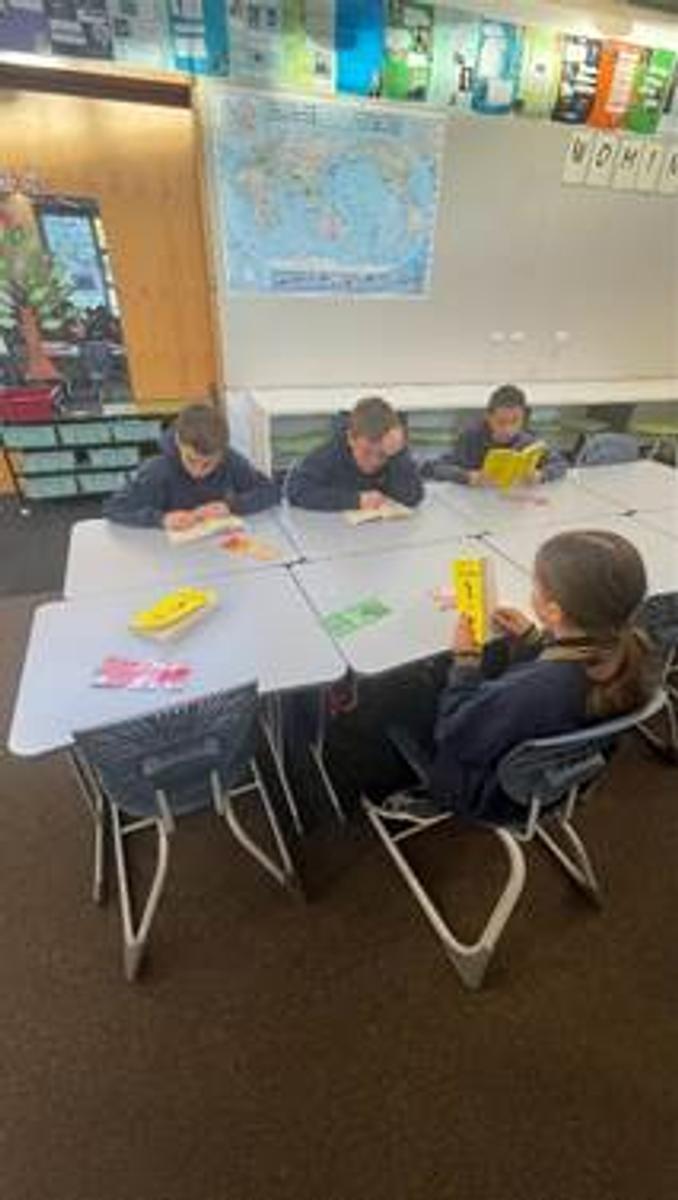
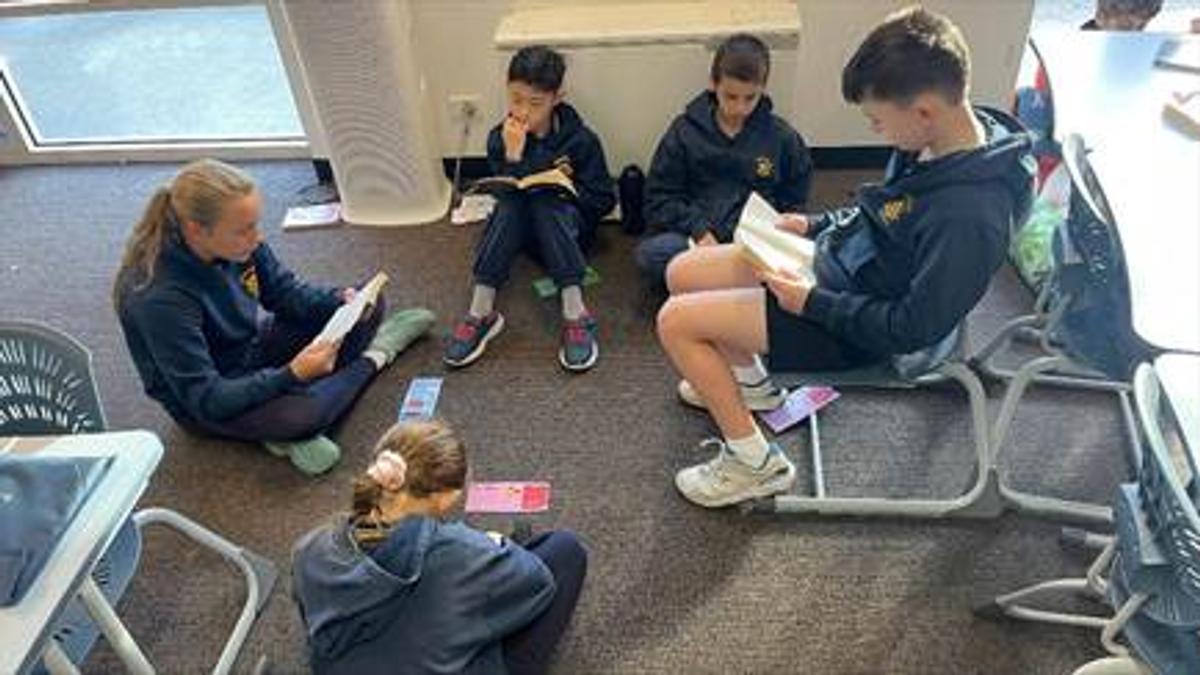







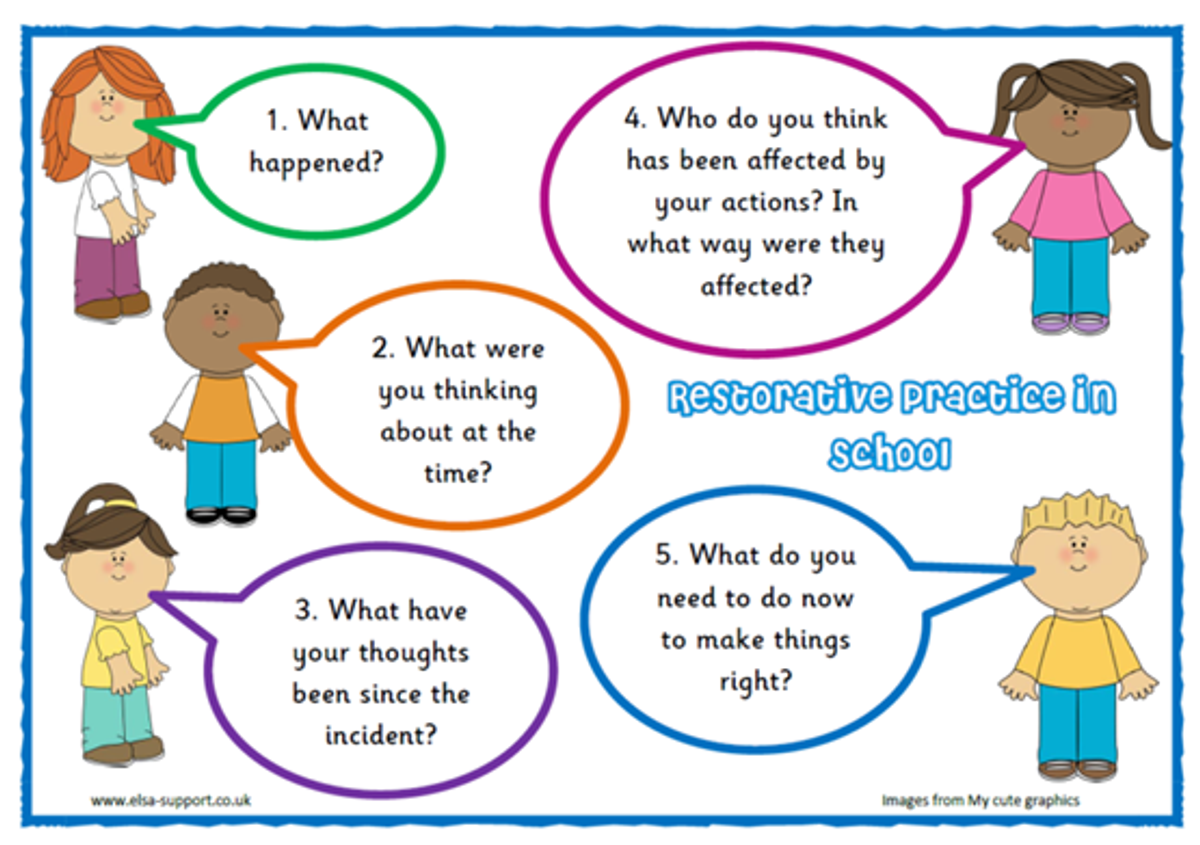

Restorative practice is a whole school teaching and learning approach that encourages behaviour that is supportive and respectful and is a strategy that is used at our school. Restorative chats (a wellbeing strategy) are structured conversations aimed at fostering a supportive and empathetic environment for students. These chats involve a teacher, who guides discussions to address conflicts, emotional concerns, or behavioural issues among students. The goal is to encourage accountability, empathy, and understanding while promoting a sense of community and belonging within the school. Restorative chats often focus on repairing harm, building positive relationships, and developing social and emotional skills essential for student wellbeing. They can help students learn to communicate effectively, resolve conflicts peacefully, and support each other's mental and emotional health.
Please see below a list of some questions you can use to respond to challenging behaviour and to help those harmed by others.
Restorative questions to respond to challenging behaviour:
Restorative questions to help those harmed by other’s actions:
Georgia Despotellis
Assistant Principal